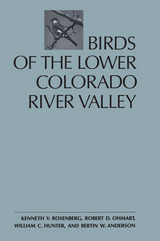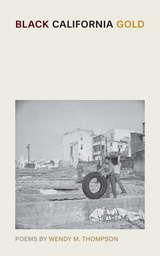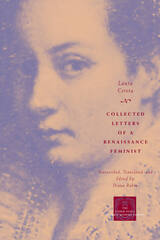
Yet these letters also furnish a detailed portrait of an early modern woman’s private experience, for Cereta addressed many letters to a close circle of family and friends, discussing highly personal concerns such as her difficult relationships with her mother and her husband. Taken together, these letters are a testament both to an individual woman and to enduring feminist concerns.
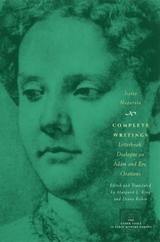
This volume presents English translations of all of Nogarola's extant works and highlights just how daring and original her convictions were. In her letters and orations, Nogarola elegantly synthesized Greco-Roman thought with biblical teachings. And striding across the stage in public, she lectured the Veronese citizenry on everything from history and religion to politics and morality. But the most influential of Nogarola's works was a performance piece, Dialogue on Adam and Eve, in which she discussed the relative sinfulness of Adam and Eve—thereby opening up a centuries-long debate in Europe on gender and the nature of woman and establishing herself as an important figure in Western intellectual history. This book will be a must read for teachers and students of Women's Studies as well as of Renaissance literature and history.
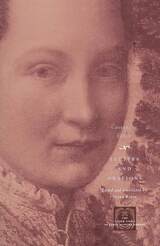
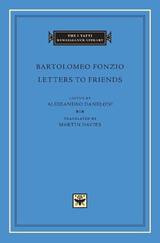
Bartolomeo Fonzio (1447–1513) was a leading literary figure in Florence during the time of Lorenzo de’ Medici and Machiavelli. A professor of poetry and rhetoric at the University of Florence, he included among his friends and colleagues leading figures such as Marsilio Ficino, Angelo Poliziano, John Argyropoulos, Cristoforo Landino, and Pietro Soderini. He was one of the principal collaborators in creating the famous humanist library of King Mattyas Corvinus of Hungary. As a scholar and teacher, he devoted himself to the study of classical authors, particularly Valerius Flaccus, Livy, Persius and Juvenal; his studies of Juvenal led to bitter polemics with Poliziano.
Fonzio’s letters, translated here for the first time into English, are a window into the world of Renaissance humanism and classical scholarship, and include the famous letter about the discovery in 1485 on the Via Appia of the perfectly preserved body of a Roman girl.
READERS
Browse our collection.
PUBLISHERS
See BiblioVault's publisher services.
STUDENT SERVICES
Files for college accessibility offices.
UChicago Accessibility Resources
home | accessibility | search | about | contact us
BiblioVault ® 2001 - 2025
The University of Chicago Press




